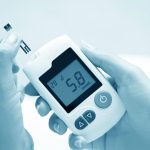EUROPE
1.Clinical investigations with medical devices – Austria
As of 01.08.2021, a new fee regulation of the BASG was put into force. For clinical investigations of medical devices according to Regulation (EU) 2017/745, which are submitted from this date, new fees apply.
The tariffs for academic clinical investigations of medical devices according to Regulation (EU) 2017/745 are thus no longer reduced! The same fees for initial and amendment applications (tariff points XII.2.a-g) apply as for commercial studies.
The fee reduction still applies to performance evaluation reviews and amendment requests for studies according to the Medical Devices Act, BGBl. I No. 46/2021 (tariff point XII.1.a-b).
Please refer to the BASG fee schedule for the current fees.
UK (MHRA)
2.Transforming the regulation of software and artificial intelligence as a medical device
The exciting and fast developing field of software and artificial intelligence (AI) as a medical device has an increasingly prominent role within health systems. Applications of AI to be regulated as medical devices can range from screening, to diagnosis, to treatment, and to management of chronic conditions. Regulatory measures will be updated to further protect patient safety and take account of these technological advances.
The MHRA has developed an extensive work programme to inform regulatory changes including key reforms across the software as a medical device lifecycle, from qualification to classification, to requirements that apply pre and post-market. This programme will consider challenges and opportunities posed by AI as a medical device, ensuring these devices are appropriately evidenced and address issues of human interpretability (lack of transparency of AI) and adaptivity (retraining of AI models).
3.MHRA launches public consultation on future of medical device regulation
Medical devices in the UK are currently regulated under the Medical Devices Regulations 2002. Following the UK’s departure from the European Union, the MHRA now has the opportunity to create a world-leading regime that prioritises patient safety while fostering innovation, including streamlining the approval of medical devices.
This consultation is comprehensive – covering a broad range of regulatory issues – from requirements for running clinical investigations, to how devices are assessed before being placed on the market through to importer and distributor obligations and post-market surveillance to transparency and the role of patients. It provides a once in a generation opportunity to ensure the safety and quality of medical devices that many of us rely on, and from which we all benefit.
US FDA
4.FDA OKs new pathology AI software
The US Food and Drug Administration (FDA) has authorized software designed to help pathologists detect prostate cancer in digitally scanned slides from prostate biopsies.
The newly authorized software, called Paige Prostate, is the first artificial intelligence (AI) tool okayed by FDA for in vitro diagnostic use for prostate cancer detection in biopsies. Paige Prostate, a product of the firm Paige.AI, is used by pathologists on digitized slide images.
With this authorization, FDA is also establishing special controls “related to labeling and performance testing” for devices of this new type; subsequent devices of this type may be cleared through the 510(k) premarket process, using Paige Prostate as the predicate device.
5.FDA launches AI-enabled device database
On Wednesday, FDA also announced it has launched a database of medical devices that utilize AI and machine learning (AI/ML).
In the announcement, FDA noted that the agency has seen an increase in recent years in submissions for AI/ML-enabled devices for use in many therapeutic areas and coming in through all of its submission pathways.
The list is a public resource, but not meant to be “exhaustive or comprehensive,” clarified FDA. Currently, the list has 343 entries and is current to mid-June 2021.
6. FDA issues draft guidance on electronic 510(k) submissions
The US Food and Drug Administration (FDA) issued a draft guidance to assist sponsors in using an electronic template for submitting a premarket notification 510(k).
In the draft guidance, FDA said it will accept the electronic Submission Template and Resource (eSTAR) template for applications to the Center for Devices and Radiological Health (CDRH) and the Center for Biologics Evaluation and Research (CBER).
The draft guidance said that eSTAR is “highly automated, includes integrated databases (e.g., FDA product codes, FDA-recognized voluntary consensus standards), and includes targeted questions designed to collect specific data and information from the submitter. eSTAR also includes applicable links to regulations, relevant guidances, and other resources for the submitter’s reference.”
The program is also structured so that submitters can enter content and have it be assembled in the 510(k) submission format; it also “closely follows” the “SMART” 510(k) review memo template used by CDRH reviewers.
This template should be used to transmit the cover letter, the submitter information, information on previous submissions of the same device, the description of the device, proposed indications for use, the predicate device and substantial equivalence, the device’s labeling, and information on methods used to sterilize the product, among other required components of the submission.
Once the draft guidance has been finalized, FDA will require electronic submissions for all 510(k) submissions and subsequent submissions to an original submission, including amendments and supplements. A 510(k) submission that is not in this format will not be accepted unless it has been exempted from being submitted electronically or the developer has received a waiver
7.FDA publishes first batch of device material safety reports in ECRI partnership
The US Food and Drug Administration (FDA) published the first four reports on the safety and performance of materials commonly used in implantable medical devices.
FDA commissioned ECRI, a nonprofit organization initially founded as the Emergency Care Research Institute that focuses on safety, quality and cost-effectiveness in health care settings, to compile the reports.
The first batch of safety summary reports pertain to magnesium, polypropylene, polyurethanes, and siloxanes. FDA notes that polypropylene is often used in surgical mesh and that siloxanes are commonly used in breast implants, two types of devices that have prompted regulatory action by FDA in recent years over safety concerns.
The reports are aimed to address five key questions, including what the typical or expected local host response to a given material is; whether the material elicits a persistent or exaggerated response that may lead to systemic signs or symptoms; and if there are patient- or material-related factors that could predict or affect the likelihood of an exaggerated or sustained immune or systemic response. The reviews also sought to identify any critical information gaps that exist for the materials and what research could be done to improve scientific understanding of the aforementioned issues.
The reports range from 55 to 114 pages each and were submitted to the agency within the last year. FDA said it will publish similar reports on additional materials as they become available



